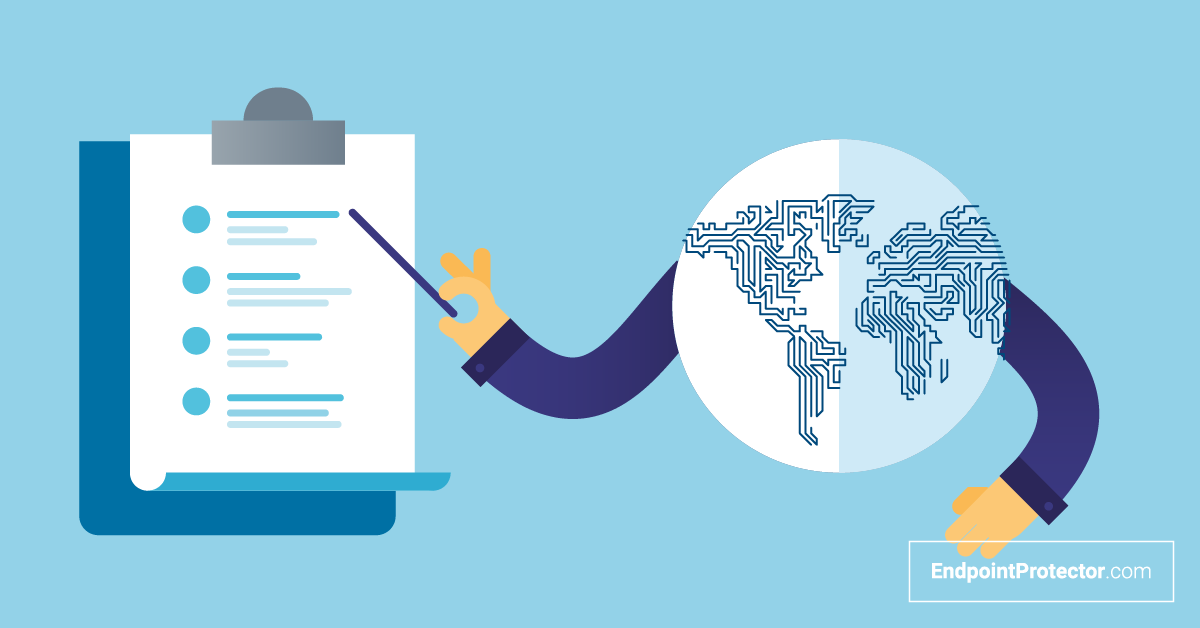Compare the different Approaches to Data Privacy Regulation
Different regions and countries have adopted distinct approaches to data privacy regulation, each with its own implications for users.

In an age where data drives the digital landscape in data privacy regulation, the need for robust data privacy regulations has never been more apparent.
Protecting users' personal information is paramount to ensuring trust and security in the online world.
However, different regions and countries have adopted varying approaches to data privacy regulation, leading to diverse implications for users worldwide.
In this blog post, we will compare and contrast several key approaches to data privacy regulation and explore their implications for users.
The European Union's GDPR: A Comprehensive Framework
The European Union's General Data Protection Regulation (GDPR) is often considered the gold standard in data privacy regulation.
It establishes a comprehensive framework that governs the collection, processing, and storage of personal data. Some key provisions of GDPR include:
a. User Consent: GDPR requires explicit and informed consent from users for data processing, giving individuals more control over their data.
b. Data Portability: Users have the right to access and transfer their data between services, promoting competition and user empowerment.
c. Penalties: Strict penalties for non-compliance, including fines of up to ?20 million or 4% of global annual turnover, serve as a strong deterrent for companies.
Implications for Users:
- Enhanced user control and transparency over their data.
- Improved data security and accountability from organizations.
- Greater trust in online services.
The United States: A Sectoral Approach
In contrast to the EU's GDPR, the United States follows a sectoral approach to data privacy regulation.
Instead of a single comprehensive law, various sector-specific laws govern different aspects of data privacy. Two significant pieces of legislation include:
a. HIPAA (Health Insurance Portability and Accountability Act): Regulates the healthcare sector, ensuring the privacy and security of patient data.
b. CCPA (California Consumer Privacy Act): Provides California residents with specific rights regarding their personal data, such as the right to opt out of data sales.
Implications for Users:
- Varied levels of protection depending on the sector and location.
- Less consistency and standardization in data privacy rules.
- A patchwork of state-level laws complicates compliance for businesses and user understanding.
China: Government Control and Data Localization
China takes a unique approach to data privacy, characterized by strong government control and data localization requirements. The Chinese government has implemented laws like the Cybersecurity Law and Data Security Law, which focus on:
a. Data Localization: Critical data collected by Chinese companies must be stored within the country, allowing the government to exert control over it.
b. Data Access: The government has broad authority to access and review user data held by companies.
Implications for Users:
- Limited user privacy rights compared to Western standards.
- Concerns about government surveillance and data access.
- Increased potential for censorship and monitoring of online activities.
India: A Balancing Act
India's data privacy approach, as demonstrated by the Personal Data Protection Bill (PDPB), aims to strike a balance between user protection and fostering digital innovation. Key provisions include:
a. Data Localization: Similar to China, India also mandates the storage of critical data within the country.
b. User Consent: The PDPB emphasizes user consent and data minimization, giving users more control over their data.
Implications for Users:
- A balance between user rights and business interests.
- Data localization may lead to improved security but also concerns about government access.
- Potential for increased trust and user confidence in digital services.
South Korea: Proactive Regulation
South Korea's Personal Information Protection Act (PIPA) represents a proactive approach to data privacy regulation. It includes:
a. Data Protection Officers (DPOs): Organizations must appoint DPOs to oversee data processing activities and ensure compliance.
b. Data Breach Reporting: Mandates reporting of data breaches to authorities and affected individuals, promoting transparency.
Implications for Users:
- A strong focus on data protection and transparency.
- Improved incident response and user notification in case of data breaches.
- Enhanced trust in digital services.
Data privacy regulation varies significantly across the globe, leading to diverse implications for users.
While the EU's GDPR provides a robust framework for user protection, the United States relies on a sectoral approach, and China emphasizes government control and data localization.
India and South Korea aim to strike a balance between user rights and business interests.
Ultimately, the approach to data privacy regulation has profound effects on user rights, data security, and trust in online services.
As technology continues to evolve, it is crucial for policymakers and stakeholders to consider the global implications of these diverse approaches and work towards international cooperation to protect user data effectively in the digital age.
What's Your Reaction?















